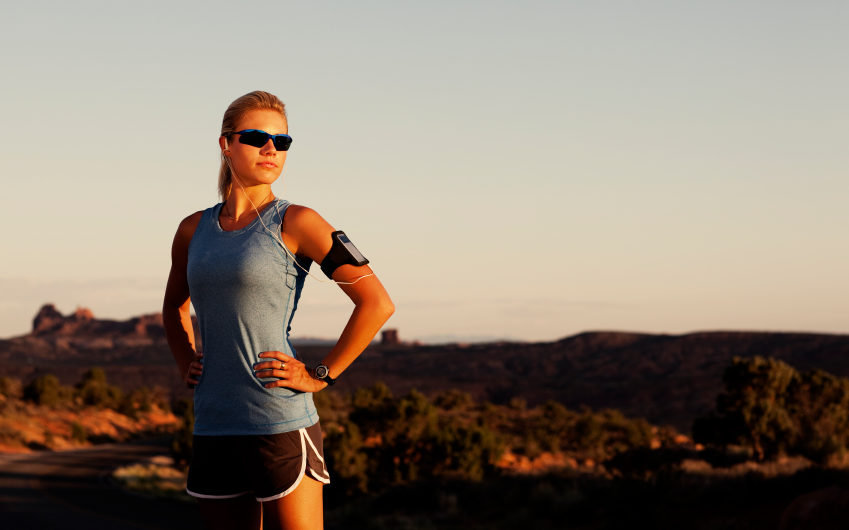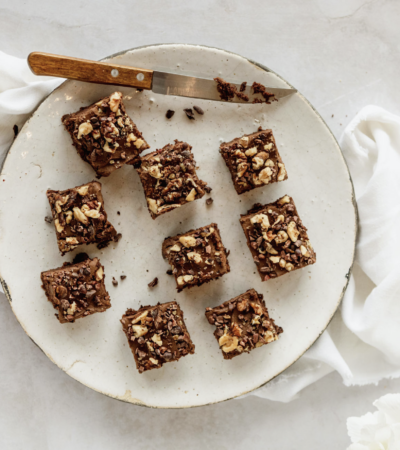Gonna fly, fly, fly…
‘Trying hard now, getting strong now, gonna fly now’ – the lyrics from the Rocky soundtrack – apparently a gym-playlist must. But why?
Words By Samantha Whitaker
According to sports psychologist Dr Costas Karageorghis, who has an international reputation for research in this field, listening to upbeat music while exercising has a significant positive effect on performance. Writing in Runner’s World he says: ‘Listening to the right songs before and during exercise will not simply reduce feelings of tiredness, it will also increase performance levels by up to 20%.’ Karageorghis also found that energy efficiency could be increased by up to 3%, meaning that athletes can run further on the same amount of oxygen.
My own research agrees. Most respondents used adjectives such as fast, upbeat and up-tempo to describe their gym music preferences. H&H’s Editor Sadie Macleod, a keen runner, prefers ‘hard and fast tunes,’ stating Rhianna, David Guetta and Timberland as her current faves. Lady GaGa also rated highly, as did the Foo Fighters and the Black Eyed Peas.
Scientific research in this area has identified several ways that music can influence preparation and competitive performance. Firstly, it distracts your mind, dulling or masking the pain of the exercise (known as dissociation). Research published in the Journal of sports medicine and physical fitness concluded that, ‘listening to a favourite piece of music might decrease the influence of stress caused by fatigue, thus increasing the “comfort” level of performing the exercise.’ The effect can reduce our perception of effort by as much as 10%, so a 66 minute run can feel like a 60 minute run with the right music. And it is thought that women benefit from the mood-enhancing effects of music more than men.
Music can also act as a stimulant. Athletes who were played loud, upbeat music showed activity in an area of the brain that pumps them up, which is beneficial before a competition or during training. Equally, slower music can be used as a sedative to calm down and focus. Olympic runner Dame Kelly Holmes, for example, uses soulful ballads in her pre-event routine. This effect is called arousal regulation, and is considered by some athletes to be a legal drug with no unwanted side effects. In fact, in 2007 the authorities banned music at the New York Marathon – causing absolute uproar. There is also proof that music aids in the acquisition of motor skills, improves coordination, and can help runners achieve the ‘state of flow’, the ultimate motivational state of being completely ‘in the zone’.
Lastly, but most importantly, research consistently shows that synchronisation of music with repetitive exercise increases performance level. This research inspired the launch of AudioFuel (audiofuel.co.uk), which creates bespoke soundtracks of custom composed music with voice coaching to help pace and, hopefully, drive runners to go further more efficiently. ‘A track that will keep you at a good running pace will have between 160 and 180 beats per minute (bpm),’ explains Clare Crean, co-founder of AudioFuel. ‘Very little mainstream music has a beat that is fast enough to match the running stride, for example, disco music is typically around 120 bpm.’ The website sells a range of training programmes to match your goal and stride rate, including long runs, interval training and timed sessions. And just as a DJ controls the energy on a dancefloor, the music varies the beat and vibe to match the training session, while the voice-over coaching provides encouragement and tips. Model Jacquetta Wheeler is a big fan. ‘I have to listen to music on long runs as it really helps to keep me going,’ she says. ‘AudioFuel have brilliant electro-house tunes that pull you along with a spring in your step.’
Other running music providers include Nike Sport Music (iTunes store), Total Fitness, Run2Rhythm, Podrunner, MP3 Running and Hellasound, as well as compilation CDs, such as Running Trax. Running Music Mix and JogTunes categorise existing music by bpm, so that you can purchase tracks yourself and create your own playlist.
Karageorghis was a leading consultant London’s Run to the Beat half-marathon, which features scientifically selected motivational music performed live by musicians positioned along the route. This year the race will be on 21 October and you can register your interest now at runtothebeat.co.uk.
So what makes the perfect work-out track?
A strong, energising rhythm is important, and a rhythmic pattern well matched to the movement patterns of the activity. Words can have a subliminal effect on your emotions, so songs with uplifting, relevant and encouraging lyrics will help. World marathon record holder, Paula Radcliffe, likes to listen to ‘Stronger’ by Kanye West, for example, and former world champion boxer, Chris Eubank, used to play Tina Turner’s ‘Simply the Best’ to prepare for a match. Choose tracks with different tempi to coincide with alternate low-, medium- and high-intensity training. Health and Performance Specialist Alex Manos (alexmanos.co.uk) believes music can really help to persevere through cardio workouts. His current number one is David Guetta, and he recommends chilled-out tracks by Morcheeba, Zero 7 or even classical music during for cool down and stretching.
But more than anything, it’s important to listen to what you like.














